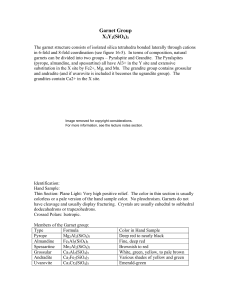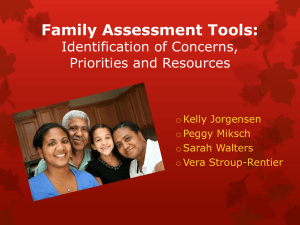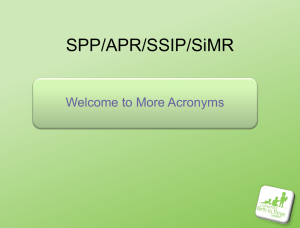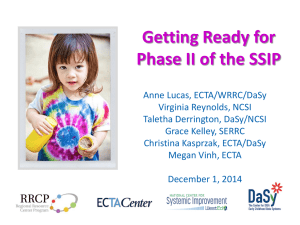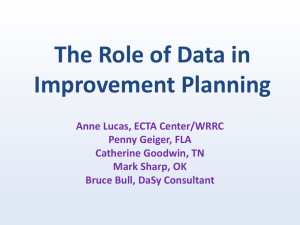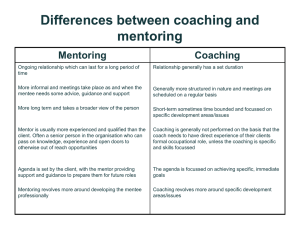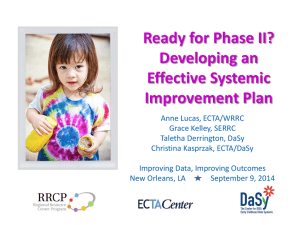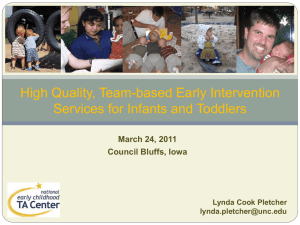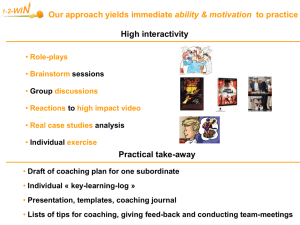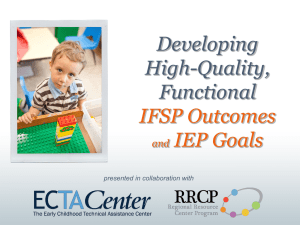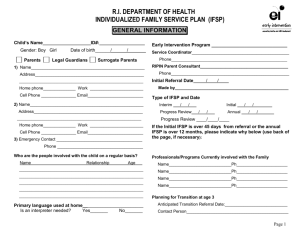these are the slides
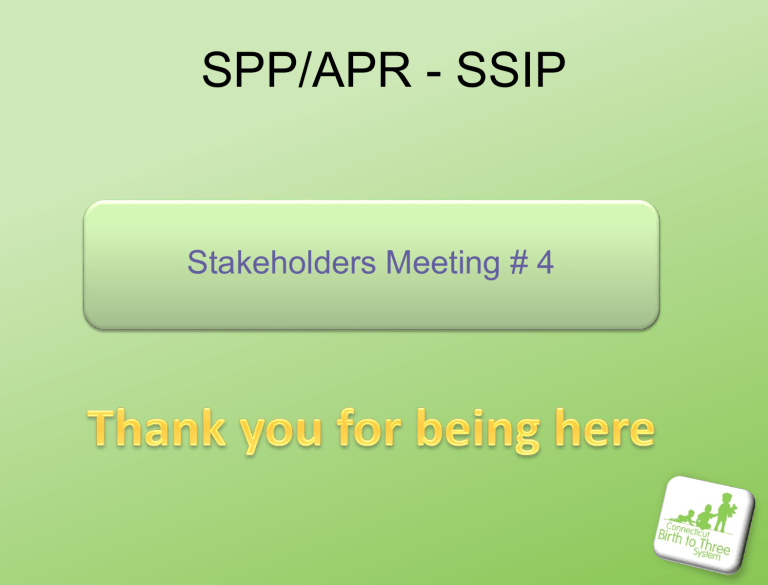
SPP/APR - SSIP
Stakeholders Meeting # 4
Agenda for Today
• What’s New
– OSEP Evaluation Tool
– Updated timeline
• Workgroups Report Out
– Data
– Infrastructure
– Improvement Strategies
– Theory of Action
• No more simmering – it’s time for a SiMR!
– Wordsmithing
• Workgroup meetings > adjourn
Click “Mark Complete” button
April 1, 2014
Finalize sections based on feedback
March
Get final input from ALL stakeholders
February Meetings
Post draft sections for public comment
February 1
Edit in to one cohesive report in GRADS January
Drafts sections to Alice
December 31st
Data
Infrastructure
Improvement Strategies
Proposed Strategies
I. Knowledge: Parent, physician and provider
1. Educate/inform parents in Birth to Three on their role in PPT meetings and the importance of being able to communicate their child’s strengths and needs
2. Develop a marketing plan to educate doctors on our efforts to empower parents. Include medical home and
Part C article
3. Develop family stories that present how and why this is important.
4. Market this initiative to providers so they understand the importance
Proposed Strategies
II. Training: Parent, physician and provider
5. Train providers on involving parents from the beginning; Evaluation reports, assessment, writing functional outcomes on the IFSP, parent and providers develop strategies that lead to parents communicating strategies they can use
6. Create training module for parents on how to and the importance of describing their child
7. build on effort to increase provider understanding and implementation of coaching, PP, natural environments work with Rush and Sheldon.
8. Continue training and TA on developing and writing outcomes
Proposed Strategies
III. Policy: Procedures, forms
9. Revise IFSP form with prompts for providers on how to have parents describe child and make lead in more active change from to have Matthew to… to Matthew will…
10. Revise Natural Environments guidelines to include working with child care
Proposed Strategies
IV. HV Practices: Curriculum, coaching
11. Make curricula (ie. ESDM, HELP, Carolina, etc.)available to parents to complete to educate parent to talk about child
12. Have parents use DECA self-assessment
13. Continue to work to improve the relevancy of ELDs as a strategy
14. Continue dissemination of Pyramid model including requiring programs to use coaching checklist
15. Provide Supervisor training on b23 model and helping staff achieve SIMR
Proposed Strategies
For Rush and Sheldon – UCONN UCEDD assist with implementation measurement – operationalize objectives into measureable outcomes. What we want to see…
Theory of Action
SiMR
Final Wording:
Parents of children who have a diagnosed condition will be able to describe their child’s abilities and challenges more effectively as a result of their participation in Early Intervention.
IFSP participation over time
Part B reading by age ?
Linking child data as a measure of child outcomes AS A
RESULT of our family outcome.
